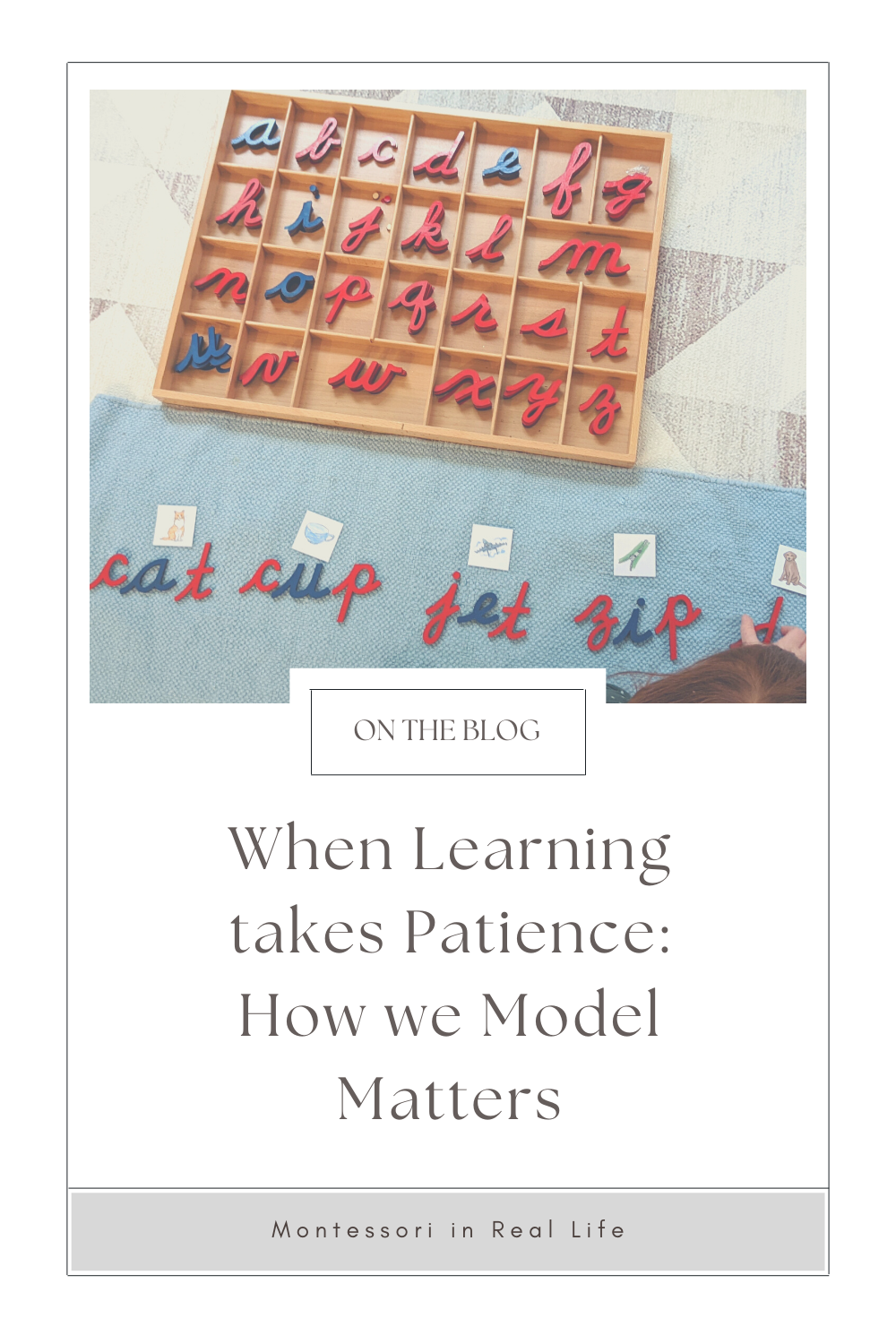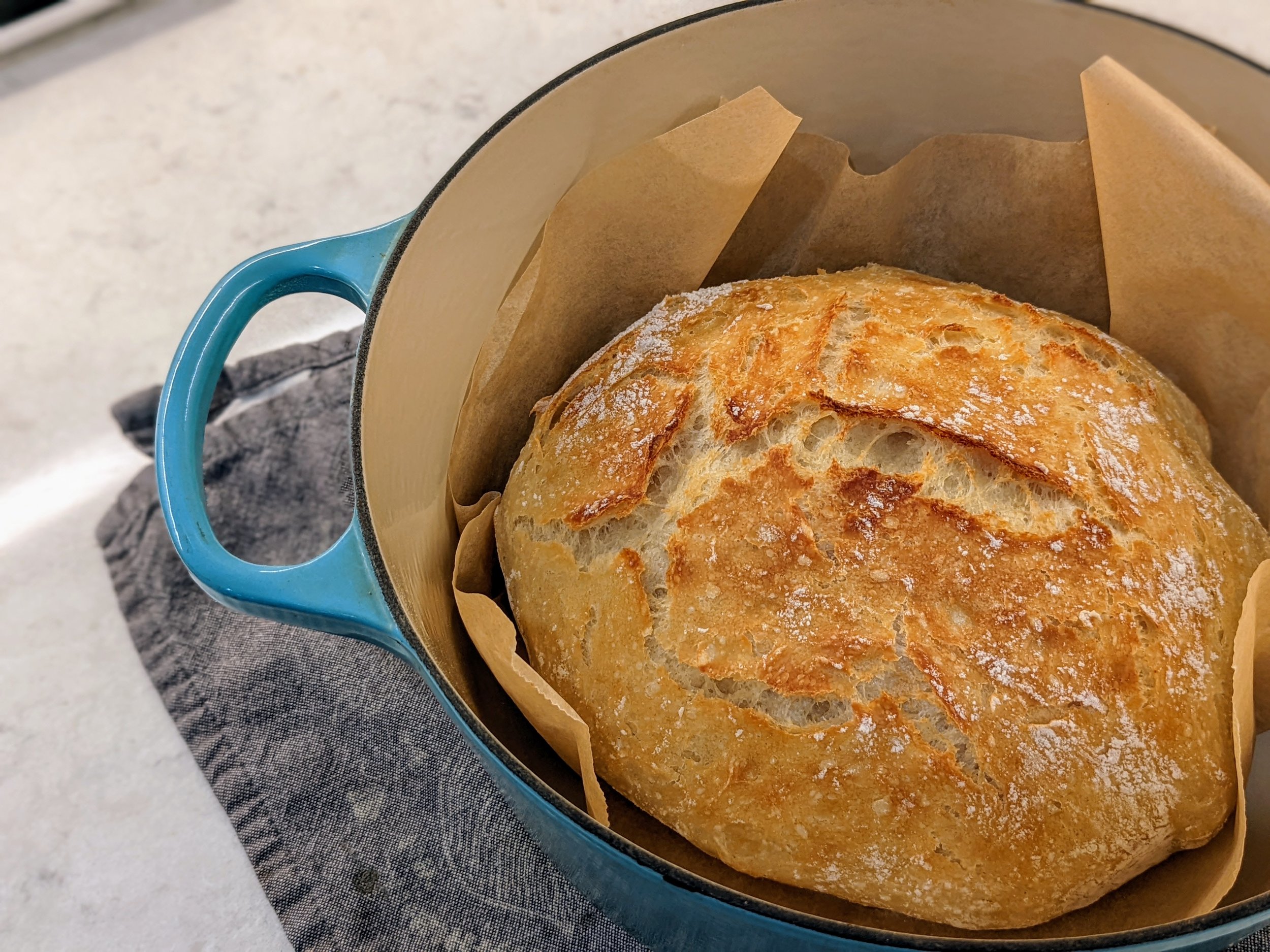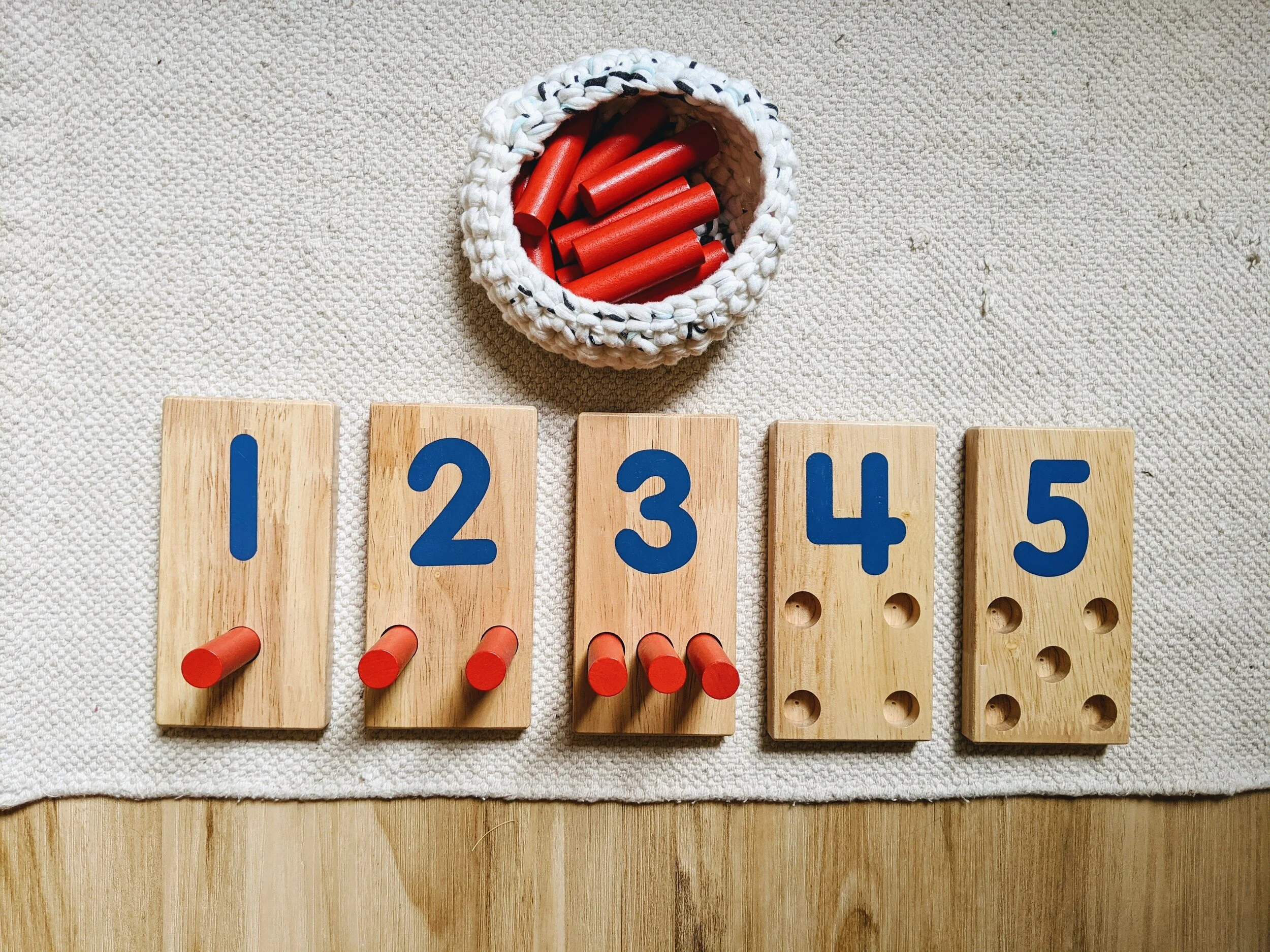Modeling Slow-Paced Learning
Montessori in Real Life
Learning new skills is frustrating. It can take weeks, months, or even years to learn something new. If this feels long to us, imagine how long it feels to a child who has only lived a few years. How do we explain to our children that some skills just take a LOT of time and practice first?
One way to do this is by modeling and normalizing the struggle. We can model the learning process ourselves, including the mistakes, the frustration, and the repetition that comes along with it. So often young children only see the things we already know and feel confident in. The truth is there is a lot we are still learning too. When our children see us, the parents, work through challenges, they feel less alone. When they see us make mistakes and experience frustration, they don’t feel shame around it.
In our home, I’ve been observing D’s strong interest in learning to write and read. I’ve also witnessed frustration as she loses patience and wants to be able to read “right NOW”. Meanwhile, S has been working hard on dressing himself. He does NOT want my help but he also struggles with items like shirts and zippers. How can I support them?
These intense (and sometimes stubborn) desires to gain new skills and independence have led me to reflect on my own path to learning. I recognize that I was, and still can be, a perfectionist. I struggled with the time it took to learn something new and would rather not show off a new skill until I was quite good at it.
These reflections have led me to make a more conscious effort to more outwardly share mistakes and verbalize my own challenges in front of the kids. It’s also inspired me to try new things and stick with the hard parts. For example, I’ve always been intimidated to make bread from scratch and only recently began experimenting with some recipes. S loves helping and D loves “reviewing” each loaf I’ve made and we laugh at my flops together. I am also always in the process of learning yoga, and the kids love watching me topple out of balance. These challenges can be small and still meaningful to our children. I hope to find some bigger challenges/hobbies too though!
Another way I model the slowness of learning is by sharing stories of my own childhood. I share memories of times I had to work really hard and keep practicing to master something challenging and new. For example, learning how to rollerblade, solve math problems, or play the piano. I’ve found the stories can be quite simple but importantly, authentic and relatable.
Lastly, when the kids are repeatedly getting frustrated with a challenge that they really want to master but just can’t quite yet, I look to the environment. I consider ways to make the task at hand more do-able. For S, are there shirts that are stretchier and bigger that I can make available to him? Is there a zipper frame I could set up to make zipping up jackets an easier task? For D, can I make sure she has ways to check her own work when writing her letters so she doesn’t feel so frustrated having to ask me. Can I offer fun and simple activities that meet her where she’s at rather than where she wants to be? Small tweaks to the environment and activities available can go a long way.














